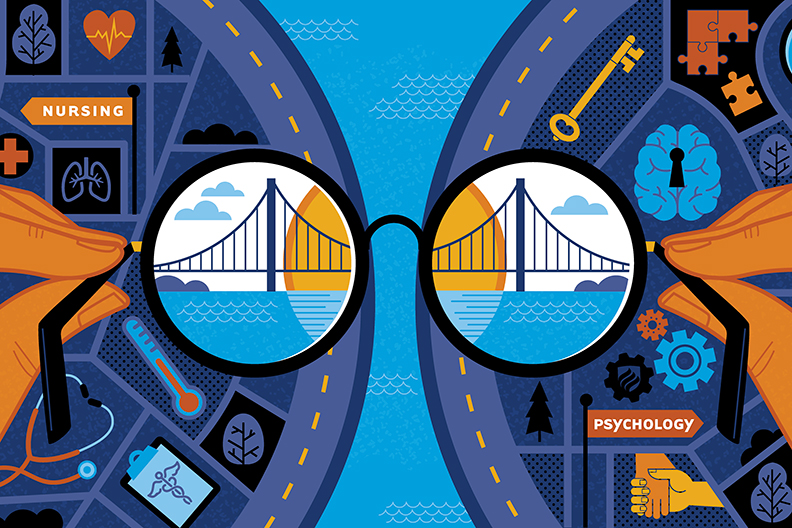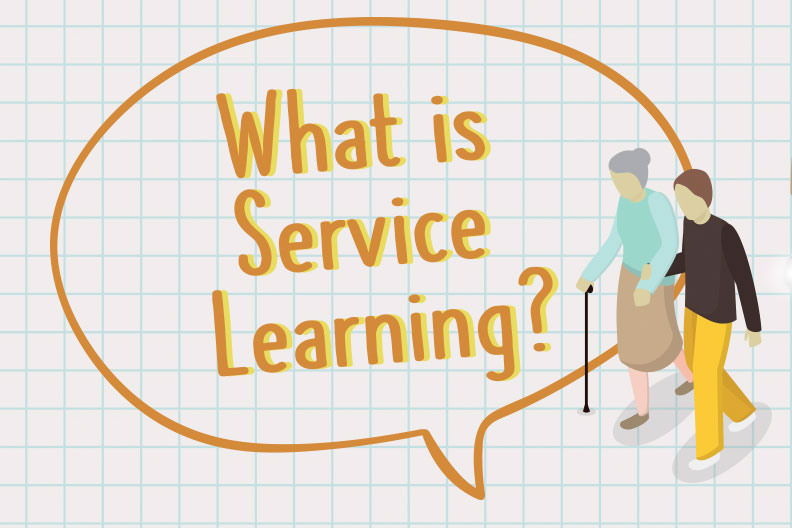The Benefits of Being an Undecided Major
UNDERGRADUATE PROGRAMS | 5 MIN READ

Let’s get right to it. There’s a simple answer to the question, “Can I enter college without a declared major?”
Yes, you can.
And will being an undecided major put you behind your classmates, delay your degree or knock you off your career path?
No, it will not.
In fact, there are serious advantages to leaving your options open as you pursue your education. One recent study found that students who make a final decision on their major in their second term or later were slightly more likely to graduate (83%) than those who cemented their decision in the first semester of their first year (79%).
Of course, there’s nothing wrong with having your mind made up before you arrive to campus. But keeping your options open sets you up to fully enjoy everything your college or university has to offer.
Advantages of Being an Undecided Major
You (and your parents) might worry about heading off to college without a major locked in. But what some see as a source of stress can actually be a big benefit.
Undecided majors—also called “undeclared majors” or “open majors,” depending on the institution—have the freedom to explore.
“From the get-go, if you’re set on what you’re going to do, you run the risk of getting tunnel vision. Conversely, [undecided majors] are developing life skills,” said Michelle Sobey, assistant director of the Niebuhr Center at Elmhurst University, which provides academic support to students. “The actual self-reflection skills are valuable. They’ll use them throughout life.”
At Elmhurst, you can change majors as often as needed, and you do not face a deadline to declare a major. This holds true for incoming first-year students, transfer students and current students. Some students change their major more than once, and it usually does not deter them from graduating on time.
Starting out “open” can introduce you to classes, professors and fields that might spark an interest you didn’t know you had. After all, college presents you with opportunities most high schools just can’t: internships, research opportunities—you name it.
Support for Your Major Decision
Meanwhile, with time on your side during your first year, you’ll benefit from a support system that channels your interests into a bona fide degree path.
Most schools offer academic advising services, mentoring and other resources designed to take the pressure out of declaring a major. Many also put on informational workshops or fairs that explore different majors and drill down to what you ultimately want to gain from your studies. Learn to lean on this support and it will carry you to your goal.
Just having another set of eyes watching your academic progress is a plus. Bonus: These aren’t just any old eyes. They belong to faculty and advisors with years of expertise and experience assisting students in the same situation.
These professionals can assess your studies and see where you’re succeeding and where you can improve. Quality advisors also know your school’s academics inside and out, and they put this intimate knowledge to work for you. For example, they might notice that your credits qualify you for—or at least put you within range of—a major or minor you might not have been considering.
First Comes Major, Then Comes Career
Remember, your advisors take your job aspirations into account as they are presenting your major options.
“I would say most students can identify at least one or two areas of interest,” said Sobey of Elmhurst University. “What they sometimes have trouble doing is drawing a straight line to a career. And the career is what often leads them to declare a major.
“So the question, then, is ‘What interests you?’ Answering this will lead them to a profession that has value, meaning and, importantly, satisfies their interests.”
Focusing on why you want to study rather than what you want to study gives you options—not a bad thing to have in a work environment where multiple career changes are the norm and diverse skill sets are prized.
Besides, where you want to go when you are just finishing high school is not necessarily where you’ll end up. Technology giant Dell made news when it revealed this estimate from the Institute for the Future: 85% of the jobs that the students of today will be doing in 2030 haven’t been invented yet.
Declare Yourself
In the end, you’ll need to decide on a major in order to graduate with a degree, and there are good reasons to indicate an intended major even as early as the college application stage.
But now you know there are good—and valid—reasons to start your college career as an undecided major. Next time you have to check a box or fill in a blank field, consider the benefits of saving your declaration for later.
Decide to Join Us at Elmhurst University
Request information by completing the form below!









